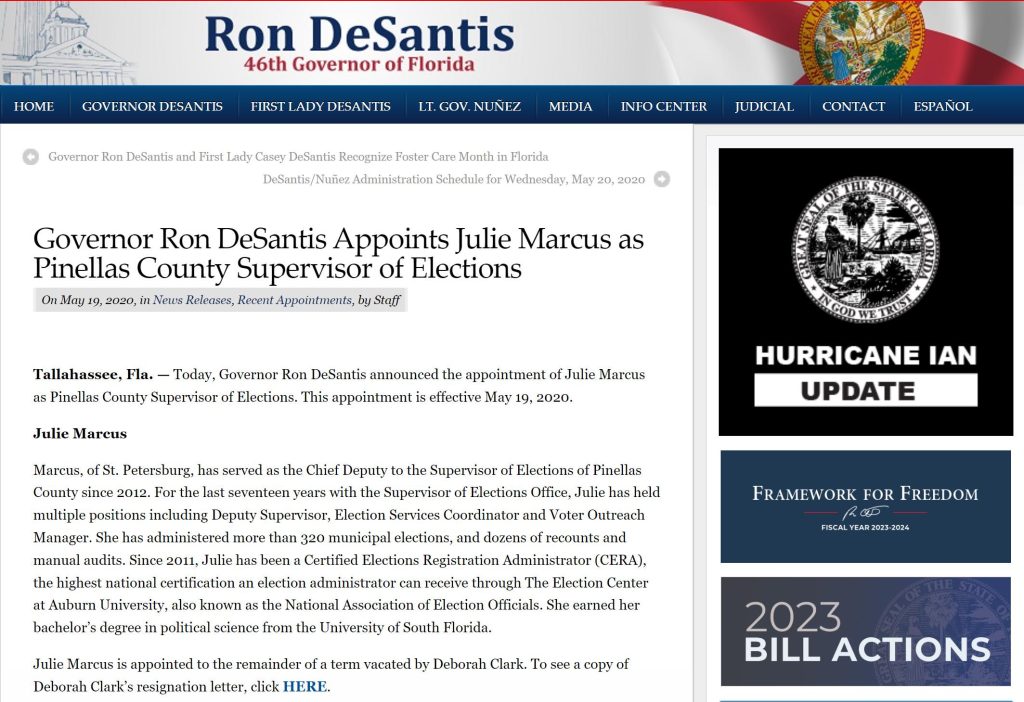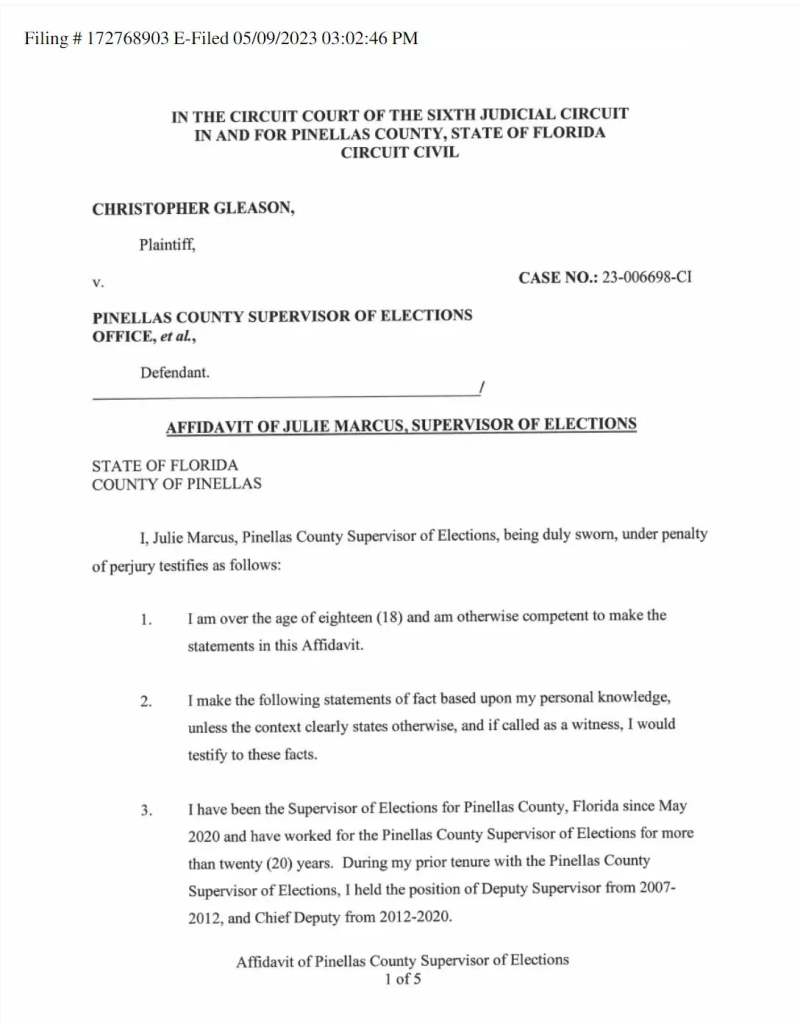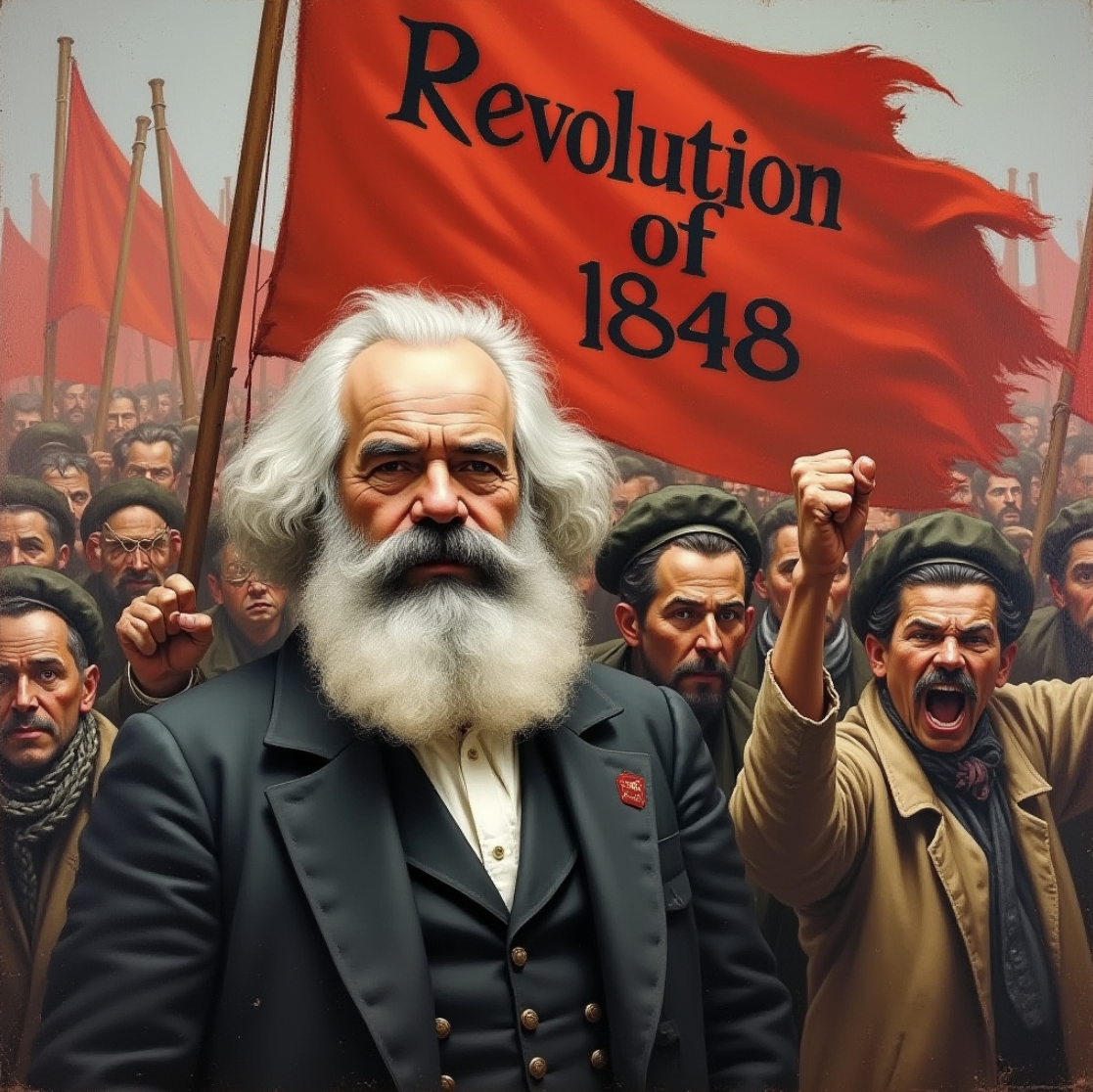Pinellas County Staff Attorney For Julie Marcus Falsely Claims The Public Has No Clear Legal Right To View Public Records That Prove Massive Election Fraud.
In May 2020 Governor Ron DeSantis hand-picked Julie Marcus to fill the roll of Pinellas County Supervisor of Elections.

In response to the Emergency Petition For Writ of Mandamus, Julie Marcus filed a sworn affidavit with several exhibits. In her sworn affidavit she made numerous false claims regarding her mandatory, non-discretionary duties as well as the production of forged, altered, and uttered official election documents and public records.

According to this Florida BAR Journal Article:
As a general rule, a litigant is deemed to have perpetrated a fraud on the court when “it can be demonstrated, clearly and convincingly, that a party has “sentiently set in motion some unconscionable scheme calculated to interfere with the judicial system’s ability impartially to adjudicate a matter by improperly influencing the [trier of fact] or unfairly hampering the presentation of the opposing party’s claim or defense.” Cox, 706 So. 2d at 46 (quoting Aoude, 892 F. 2d at 1118). The “clear and convincing” standard is an intermediate standard of proof between a “preponderance of the evidence” and “beyond a reasonable doubt.” Smith v. Department of HRS, 522 So. 2d 956 (Fla. 1st DCA 1988). For evidence to be “clear and convincing” “[it] must be of such weight that it produces in the mind of the trier of a fact a firm belief or conviction, without hesitancy, as to the truth of the allegations sought to be established.” Slomowitz v. Walker, 429 So. 2d 797, 800 (Fla. 4th DCA 1983). See also Small Business Admin. v. Echevarria, 864 F. Supp. 1254 (S.D. Fla. 1994).
According to Rule 4-3.3(a)(4) of the Rules Regulating The Florida Bar strictly prohibits a lawyer from knowingly “[p]ermitting any witness, including a criminal defendant, to offer testimony or other evidence that the lawyer knows to be false.” Moreover, it is equally well established that a violation of Rule 4-3.3(a)(4) can result in disciplinary action by The Florida Bar. See Dodd v. The Florida Bar, 118 So. 2d 17, 19 (Fla. 1960) (“No breach of professional ethics, or of the law, is more harmful to the administration of justice or more hurtful to the public appraisal of the legal system than the knowledgeable use by an attorney of false testimony in the judicial process. When it is done it deserves the harshest penalty”). See also The Florida Bar v. Kleinfeld, 648 So. 2d 698, 701 (Fla. 1994) (“An officer of the court who knowingly and deliberately seeks to corrupt the legal process can logically expect to be excluded from that process”) (citing Dodd); The Florida Bar v. Agar, 394 So. 2d 405 (Fla. 1980) (holding that where a lawyer, actively or passively, arranges for a witness to testify falsely, the rule stated in Dodd should be adhered to and the lawyer should be disbarred).
To read more visit Substack.





















